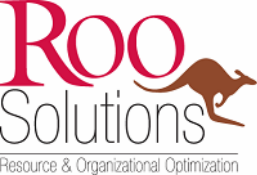I am enjoying the gift of a quiet Saturday, and catching up on the reading I've missed the past few weeks. I skimmed the expected blogs about employee engagement, new hire orientation and read most of the Affordable Care Act information. What I didn't expect to find in such abundance was the prevalence of literature about a return to command and control management and the effectiveness of negative incentives.
Bloomberg Businessweek recently published a lengthy article about what it is like to work for Jeff Bezos. Bezos personally reviews customer complaints and forwards critical issues to staff with one simple symbol:
?
Bloomberg Businessweek recently published a lengthy article about what it is like to work for Jeff Bezos. Bezos personally reviews customer complaints and forwards critical issues to staff with one simple symbol:
?
While in some organizations this could be interpreted as an inquiry or opening of a discussion, at Amazon it starts an intense fire drill of issue research and often results in a verbal flogging. His staff calls these harsh, and often public, criticisms “the nutters”. When Bezos types "?" People panic.
Pavlov and the dog. Bell rings. Dog Salivates. Get food.
Bezos and the cube workers. “?” email arrives. Blood pressure sky rockets. Problem solved.
Classical conditioning. There is no denying the company’s amazing performance and innovation, but I wouldn't want to work there.
Another article, published by Kellogg Insight, found that test subjects responded more strongly to negative than positive incentives. In other words, it is better to take away, than to give, if you want to motivate people. This research seems at odds with contemporary HR and leadership practices. The research also showed that people are really poor predictors of what will actually motivate them. People tend to state they will enjoy positive incentives more than negative, but the corresponding behavior shows stronger motivation to avoid a negative consequence. Again, this sounds a bit like Pavlov with a bit of Maslow thrown in.
According to Maslow's hierarchy of needs, people must first satisfy their needs for safety and security before anything else matters.
I need to keep my job so I can pay my rent.
I need to respond to Bezos "?" to avoid being berated publicly.
I would like to think most people and organizations are moving toward achieving higher level needs. The need for affiliation and contribution. People are more likely to do their best work and offer up discretionary effort.
The Kellogg study also discovered that age matters in motivation. Those under 35 are more motivated by avoiding negative consequences than positive incentives. Perhaps as people start their careers it is most important to focus on establishing experience and creating self-sufficiency. Those 35 and older tend to be more motivated by positive framing and higher level needs.
I don't know whether it is Maslow style motivation, age or simply my stubborn streak, but I choose not to work with "The Nutters."
Pavlov and the dog. Bell rings. Dog Salivates. Get food.
Bezos and the cube workers. “?” email arrives. Blood pressure sky rockets. Problem solved.
Classical conditioning. There is no denying the company’s amazing performance and innovation, but I wouldn't want to work there.
Another article, published by Kellogg Insight, found that test subjects responded more strongly to negative than positive incentives. In other words, it is better to take away, than to give, if you want to motivate people. This research seems at odds with contemporary HR and leadership practices. The research also showed that people are really poor predictors of what will actually motivate them. People tend to state they will enjoy positive incentives more than negative, but the corresponding behavior shows stronger motivation to avoid a negative consequence. Again, this sounds a bit like Pavlov with a bit of Maslow thrown in.
According to Maslow's hierarchy of needs, people must first satisfy their needs for safety and security before anything else matters.
I need to keep my job so I can pay my rent.
I need to respond to Bezos "?" to avoid being berated publicly.
I would like to think most people and organizations are moving toward achieving higher level needs. The need for affiliation and contribution. People are more likely to do their best work and offer up discretionary effort.
The Kellogg study also discovered that age matters in motivation. Those under 35 are more motivated by avoiding negative consequences than positive incentives. Perhaps as people start their careers it is most important to focus on establishing experience and creating self-sufficiency. Those 35 and older tend to be more motivated by positive framing and higher level needs.
I don't know whether it is Maslow style motivation, age or simply my stubborn streak, but I choose not to work with "The Nutters."
